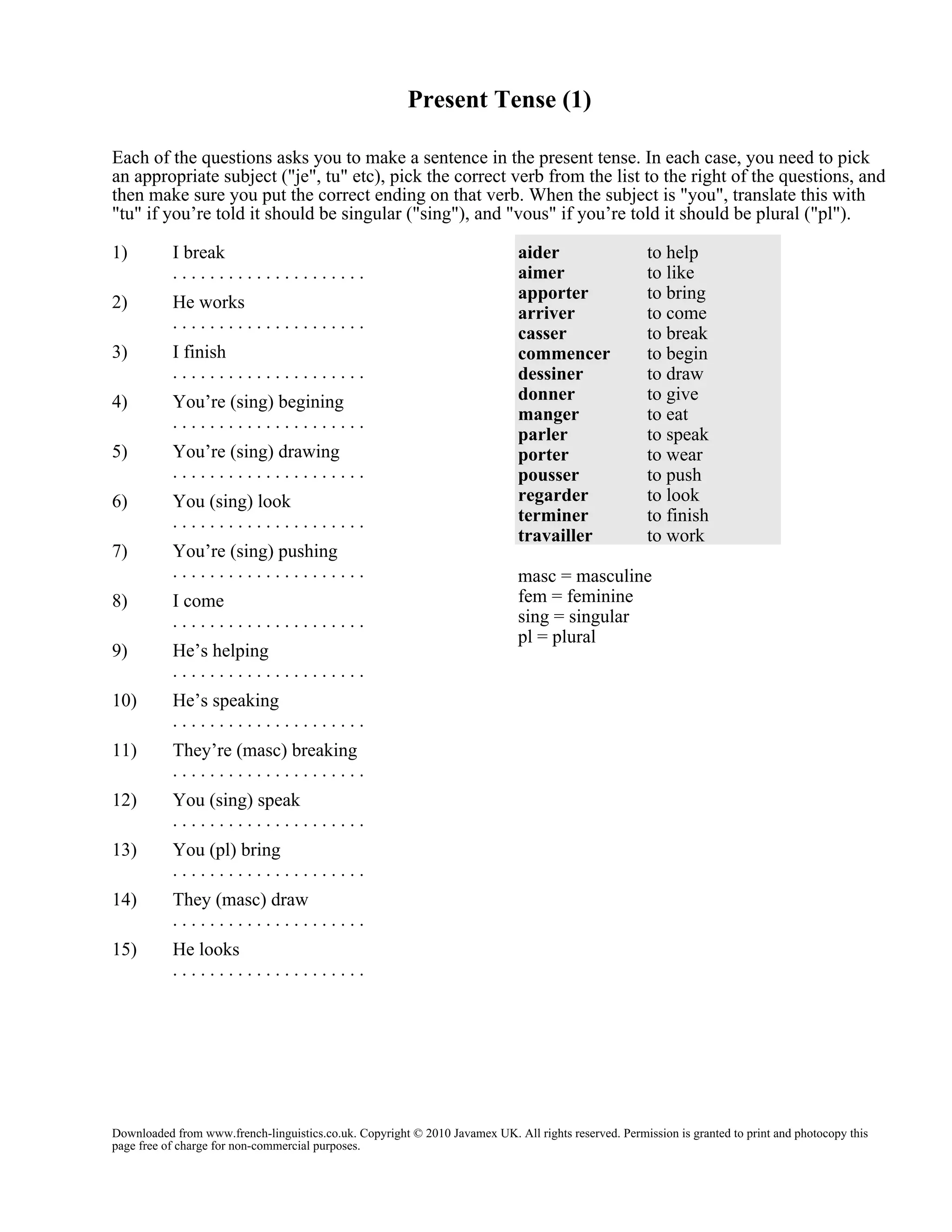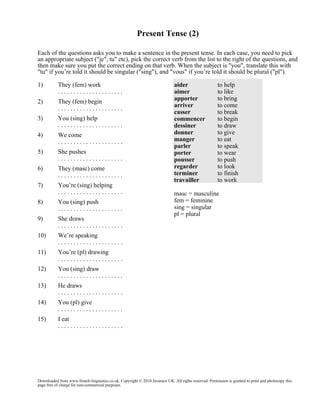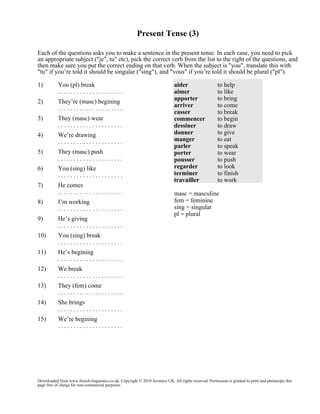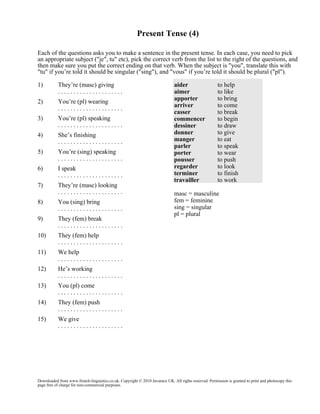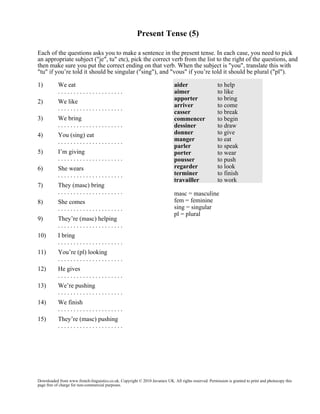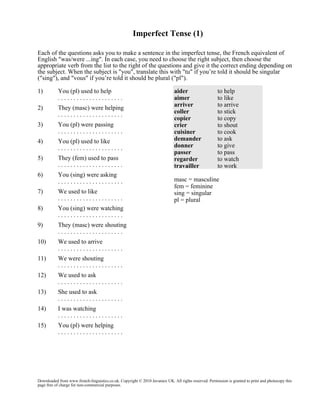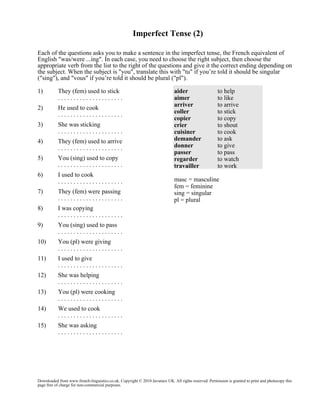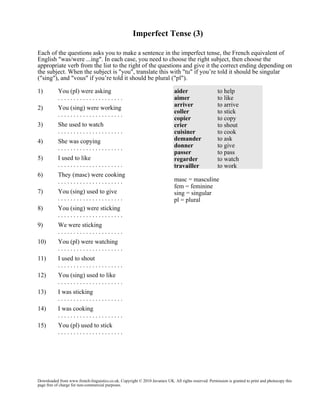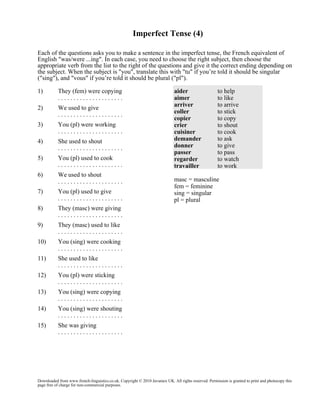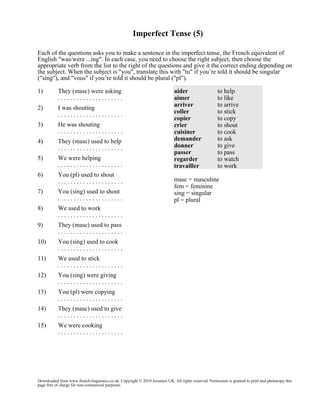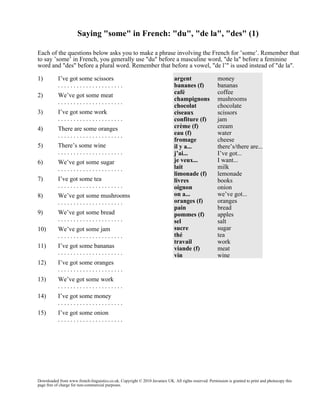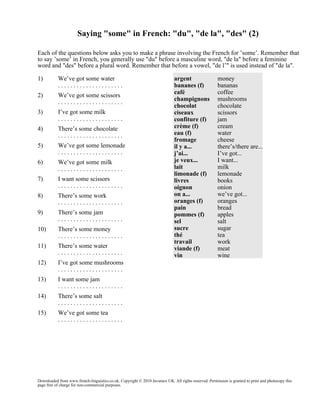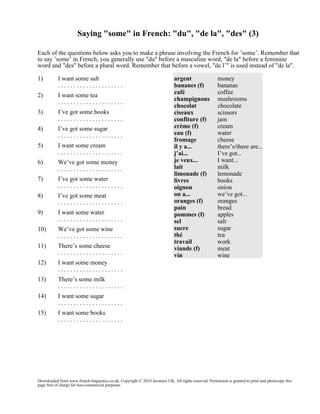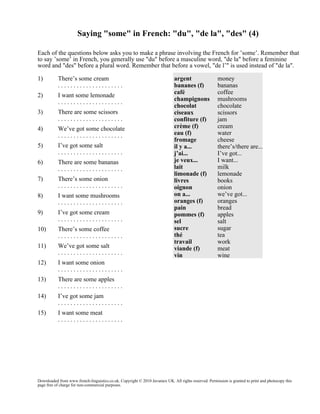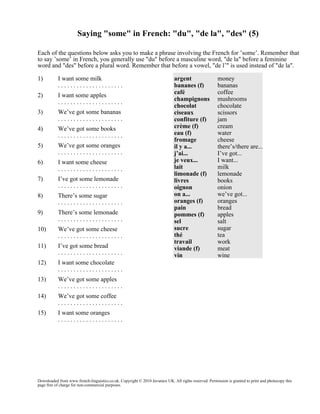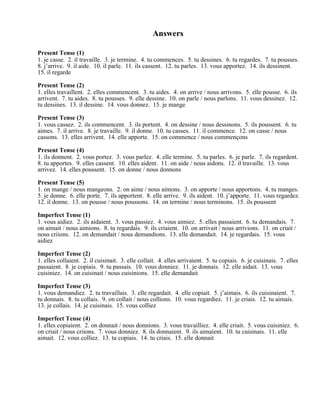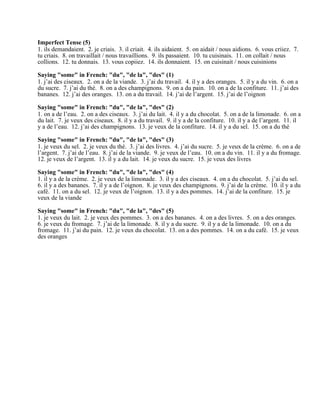This document provides exercises to practice forming sentences in the present and imperfect tenses in French. For each exercise, the learner is provided a subject and must select the appropriate verb from a list to form a sentence. There are multiple pages of exercises for students to practice conjugating different verbs in both tenses with a variety of subjects, including "je", "tu", "il", "elle", and plural forms. The goal is to help students learn how to properly conjugate verbs in different tenses based on the subject.
